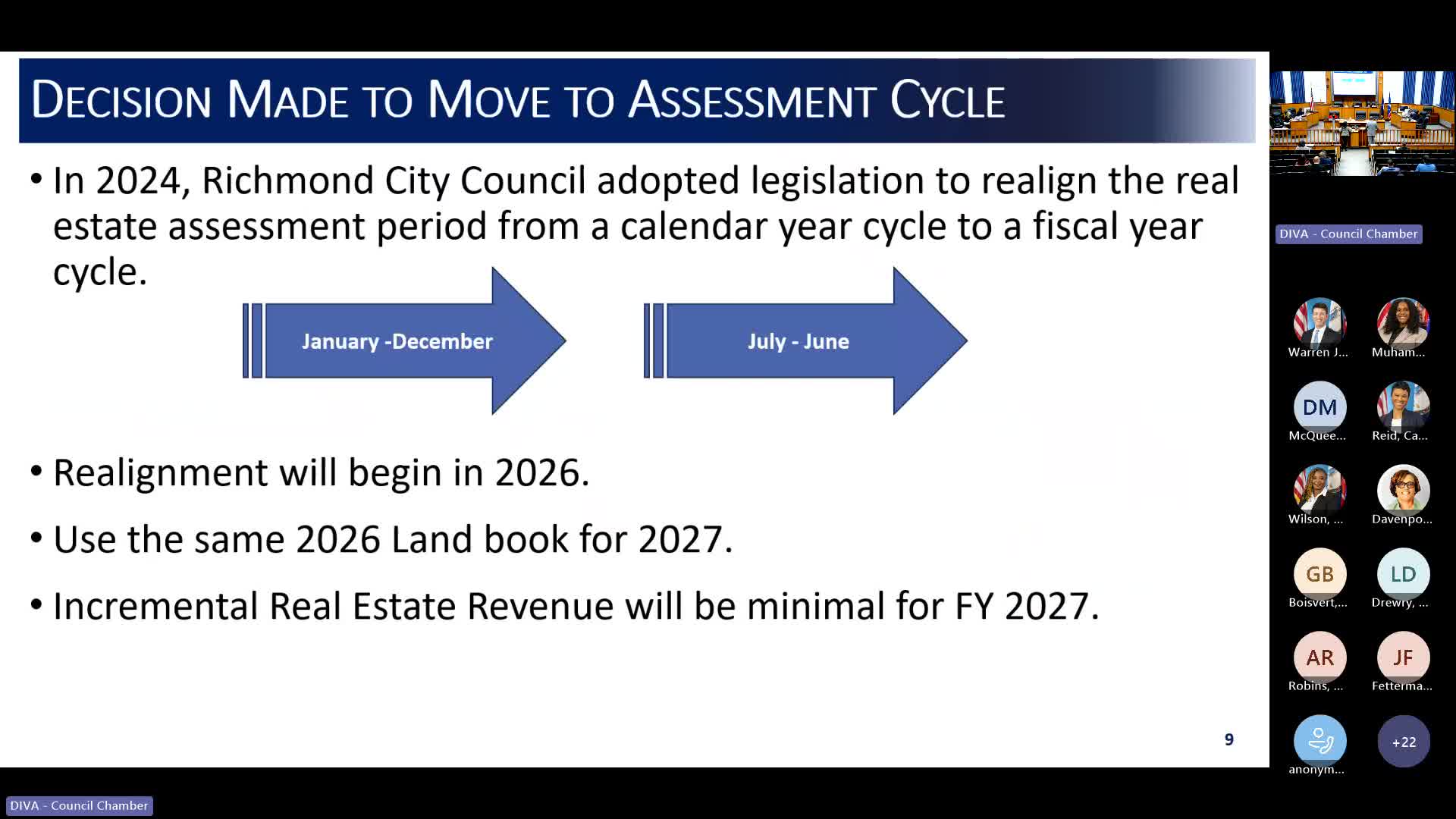HR projects collective-bargaining cost increases; staff to deliver July review
Get AI-powered insights, summaries, and transcripts
Subscribe
Summary
City staff presented projected cost increases tied to recently negotiated collective bargaining agreements and outlined staffing, legal and operating costs; the administration said it will prepare the review of collective bargaining performance required by code for submission in July.
City Human Resources staff briefed the Finance and Economic Development Standing Committee on projected personnel and administration costs associated with newly negotiated collective bargaining agreements and said the administration will prepare the statutory review of collective bargaining for submission in July.
Tyrone Alexander, Richmond's director of human resources, told committee members that collective bargaining now covers about three-quarters of the city's workforce and that negotiated wage and market-adjustment provisions will increase personnel costs over the next several fiscal years. Alexander said the administration has programmed market adjustments and percentage increases for multiple bargaining units and that the provisional total cost associated with the set of collective bargaining agreements presented is roughly $349.8 million over the multi-year period covered in the presentation.
Elements of the estimate: Alexander and staff said the cost projections are based on active employees as of March 2025 and include wages, market adjustments and related costs funded across all city funding sources (including enterprise funds). Staff also listed additional support costs: two labor-relations staff positions (baseline payroll and benefits totaling roughly $362,000 in FY25), a baseline for professional fees (outside counsel, arbitration and mediation) set at $500,000 across the period, and other operating supports (union-related administrative items, clothing and safety equipment, medical and related services) projected at roughly $1.1 million to $1.3 million per year.
Administration view and caveats: Alexander noted that numbers will change with staffing levels and final ratification and emphasized that the figures account for both direct wage costs and related operating and professional expenses. He said a key caveat is that the totals are calculated using the active-employee roster from March 2025 and that the calculation includes all funding sources.
Council questions and next steps: Councilmember Gibson asked whether the city can quantify savings from reduced vacancy and turnover'metrics that the administration attributes in part to bargaining and recent workforce initiatives. Alexander said staff will take that request as a referral to provide year-over-year details on vacancy, turnover, overtime and outsourcing costs. Councilmember Gibson and others asked about timelines for the mayor's required review of collective bargaining; Alexander said staff are gathering the data and will prepare the report for the July deadline.
Context: council members and staff framed the discussion as balancing the up-front budgetary impact of wage and market adjustments against potential operational savings from lower vacancy and turnover. The administration described the bargaining arrangements, wage multipliers tied to neighboring localities for police and fire, and planned market adjustment pools for other unions.
